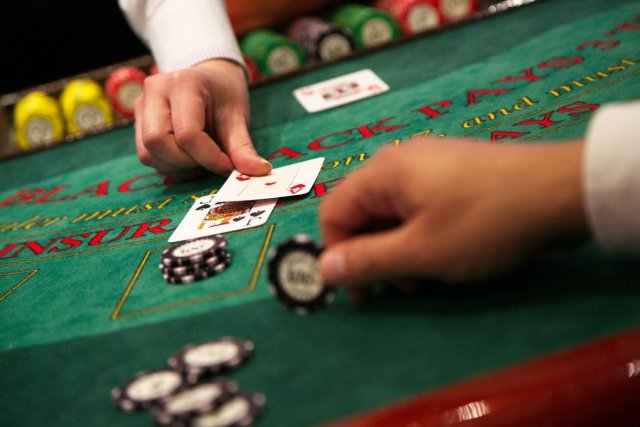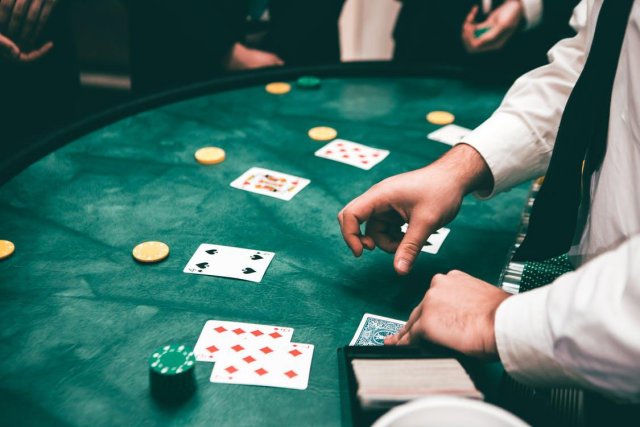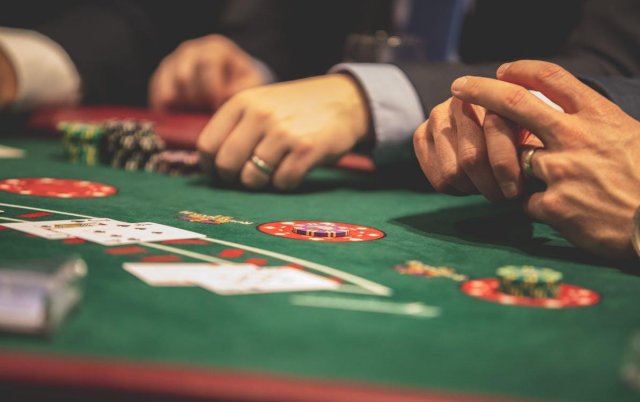|
|
 |
 |
| |
| Knowing when to split in blackjack |
| |
|
| |
 |
| |
Blackjack,
twenty-one, pontoon or whatever you want to call it is the globally popular
casino banking game that is played just as much by gambling pros as it is by
complete novices.
The first recorded mention of the game was by the
author Miguel de Cervantes in his 1605 classic novel Don Quixote. In the 415
years since that first mention has passed, blackjack players have come up with
a multitude of strategies to win the game and beat the banker.
In this
article we take a look at some of the best strategies used by experienced
players and attempt to answer that all-important question of when to split in
blackjack. Of course, it’s not an easy question to answer, it’s a
topic of heated debate among even the most experienced blackjack players. Henry
Tamburin Ph.D, an esteemed author and an expert in blackjack, has written a
detailed blog explaining
when to
split in blackjack, which is a great place to get an understanding of the
technique and how use it to your advantage.
Splitting
|
| |
 |
| |
One
of the most important weapons in a blackjack player’s arsenal is splitting
pairs. In simple terms, splitting gives players an extra chance to beat the
dealer and double their win. It is a fantastic way to gain an advantage, but
for such a simple tactic, there are pitfalls…
Most online and
land-based blackjack providers allow players to split when they are dealt a
pair. In doing this, players are left with two separate hands to play on
with.
However, the stake placed on the first card must be matched by the
stake on the second, split card. Therefore, an optimist might view splitting as
a great way to win more money, whilst a pessimist could view it as a way to
double their losses. Which is why splitting at the right moment is vitally
important.
Here are a few examples of pairs you might receive and
whether or not splitting is a good idea…
Nines If you’re dealt two nines to start
with then you already have a really, really
strong hand to beat the dealer with, likewise if you receive a
pair of tens. Splitting nines or tens weakens your hand and makes you reliant
on a wonder card to beat the dealer.
Verdict: Don’t Split
Eights: Many players would be
tempted to play cautiously and stand on 16, but if you do that, you’re
opening yourself up to lose. The best-case scenario you’ll be playing for
is a push.
Splitting eights gives you two separate chances of hitting
the much stronger hand of 18.
Verdict: Split
Aces: The Holy Grail in blackjack is an ace
but hitting them together at the same time is actually a bad thing. You’ll
be left with 2, leaving you a long road to reach a winning hand.
Split
the cards instead and then hope for a couple of picture cards or tens to take
your hands up to 21.
Verdict: Split
Fours: Small pairs like fours and fives may
not seem glamorous, but they do give you a great springboard for hitting a
winning hand. If you split on fours and fives, you’re putting obstacles in
your own way.
Verdict:
Don’t Split
|
| |
 |
| |
Splitting
Ditch caution: In certain situations, there is a
tendency amongst players to play cautiously and stick with what they have. Take
this scenario for example, you hit a 12 and the dealer has a 2 or 3
upcard.
The natural inclination will be to stick and hope that the
dealer goes bust or can’t match your 12. The most likely outcome however
is that the dealer will beat your hand and you’ll wind up
losing.
Whilst there is also a pretty high chance of you going bust, the
best thing to do in this scenario is hit and try your luck. More often than
not, you will end up going bust, but there will be occasions when you
win.
This might not sound appealing, but it is a much better strategy
than waiting in out on a 12 and losing all the time. Be brave, be bold and you
might just be rewarded in tricky situations.
Doubling down: If you hold a two card 10
against any dealer’s upcard of 9 or less then you are the clear favourite
in the hand.
Double down in this scenario and you will more than likely end
up winning, it’s a simple yet effective strategy.
Surrendering is not weakness:
Many blackjack players and gamblers in general have a negative view on
surrounding or giving up. For many it is the worst sin you can commit at a
gambling table as it shows a lack of courage and confidence.
Discretion
is the greater part of valour in certain situations though and giving up can
save you money in the long run. A hard 15 or 16 are two of the worst possible
hands to be dealt in blackjack.
If you are unfortunate enough to hit
these cards when the dealer shows an upcard of nine of above, then minimise
your losses by surrendering. It may not be fun, but it will cut your losses and
stand you in good stead for later hands.
What not to do
There are plenty more blackjack
strategies than the ones mentioned in this article, with the vast majority
being specific to certain hands or in-game scenarios. There is however one rule
that stands firm for every possible ramification in a game of blackjack and
that is, never take the insurance bet.
The payoff for an insurance bet
is either 2 to 1 or even money, which in every scenario in which it is offered
is less than the odds that the dealer will have a blackjack. Even if the
dealer’s upcard is an ace and you’re stuck on 18 or
19, the insurance bet is still a bad one to make in the long run.
The
final and most obvious rule for playing blackjack successfully is to stick to
your financial limits. Don’t go chasing the next winning hand because
you’ll ultimately end up being disappointed.
Stick to that rule and
the strategies mentioned in this article and you’ll boost your enjoyment
of blackjack immeasurably. |
 |
|
| |
|
|
 |
|